For almost a century, all U.S. states have enforced compulsory education laws that permit the State to extort parents at gunpoint, taking their money and children away from them to fund and fill indoctrination camps for a third of the day, 5 days a week, 9 months a year, and 12 to 13 years of their children’s formal development. The layperson or the pseudo-intellectual may believe that calling schools “indoctrination camps” seems quite farfetched, and it does until you realize the inherent nature of what schools are. Most schooling options look very similar to each other regardless of whether they are public district schools, public charter schools, or traditional private schools. They all are very reminiscent of the Prussian schooling system, which inspired the U.S. Education System to follow its course in developing a top-down “learning environment” where teachers teach subject matter and content that is predetermined and chosen for them by politicians and higher-up district or network administrators. In this setting, students do not have a say in what they learn about, how they learn it, how they express the understanding of their learning, who they learn with, where they learn, why they learn, and to what extent they learn. Schools create an illusion that the learning of information and concepts is taking place, but that is far from the reality. Within a short period of time, students, on average, tend to forget most of what was covered and “learned”, so what is actually being learned? As the late John Taylor Gatto, an award-winning NY public school teacher, describes in his book “Dumbing Us Down: The Hidden Curriculum of Compulsory Schooling”, the inherent nature of compulsory schooling teaches the following seven lessons: confusion, class position, indifference, emotional dependency, intellectual dependency, provisional self-esteem, and the idea that one cannot hide, which all serve to develop compliance and conformity in students.
In schools, confusion takes place in the classroom whereby teachers cover too many different subjects without making any explicit connections between any of them. Gatto states,
“I teach the un-relating of everything. I teach disconnections. I teach too much: the orbiting of planets, the law of large numbers, slavery, adjectives, architectural drawing, dance, gymnasium, choral singing, assemblies, surprise guests, fire drills, pull-out programs, guidance with strangers my students may never see again, standardized tests, age-segregation unlike anything seen in the outside world…What do any of these things have to do with each other?”
Beyond not explicitly making connections between seemingly different topics, students rarely come to understand the value and utility in learning because nothing ever makes any sense. One does not ever know why they are learning anything, and for this reason, students do not make much meaning of the information or facts they recall. Students do not know why any of it is relevant or important. At best, they remember isolated facts and are able to regurgitate information or vocabulary without having a deep and profound understanding of concepts or ideas. These experiences of confusion suggest to students that “it is better to leave school with a tool kit of superficial jargon derived from economics, sociology, natural science, and so on than with one genuine enthusiasm.” Schools breed, on average, a mediocre jack of all trades, reinforcing compliance and conformity.
Throughout students’ educational experience, they also come to understand where they stand in the social and intellectual hierarchy. Gatto describes this lesson as class position wherein a teacher’s job is to
“…make them like being locked together with children who bear numbers like their own. Or at least endure it like good sports. If I do my job well, the kids can’t even imagine themselves somewhere else because I’ve shown them how to envy and fear the better classes and how to have contempt for the dumb classes. Under this efficient discipline, the class mostly polices itself into good marching order. That’s the real lesson of any rigged competition like school. You come to know your place.”
Here, Gatto touches on two components of class position. The first one is authority. Over the years in school, students recognize their position relative to that of their teacher. The students are submissive to the authoritarian in the classroom, the teacher, who commands the classroom. They learn to behave and accept the commands of the teacher. The other component is archetypes. Over the years, students ascribe themselves to a specific archetype: the smart kid, the average kid, the dumb kid, and others due to the grades and scores they get on assignments and standardized tests, the classes they are put in (e.g., remedial, general education, honors, etc.), and the type of feedback they get. There is never a genuine focus on individual student progress or strengths and abilities. Students learn where they stand in the educational hierarchy and eventually accept their perceived fate, coming to believe that they are not capable of critical thinking. The more students lack confidence in their intellectual capability, the easier it is to have them conform and comply.
The first two lessons of schooling cause students to become indifferent about learning and intellectual stimulation. Gatto states that teachers support the lesson of indifference by,
“…demanding that [students] become totally involved in my lessons, jumping up and down in their seats with anticipation, competing vigorously with each other for my favor…But when the bell rings, I insist they drop whatever it is we have been doing and proceed quickly to the next work station. They must turn on and off like a light switch. Nothing important is ever finished in my class nor in any class I know of. Students never have a complete experience.”
Throughout their schooling experience, students over time start to believe that if what they were doing or learning at school was all that important, they would continue indefinitely until the task or lesson was complete as opposed to ceasing all activities when a bell rings at an arbitrary time. This inevitably creates indifference in students, which breeds nihilism and a sentiment that things in general lack importance or meaning. Students come to an understanding that these things they are learning do not actually matter; students especially believe this when teachers cut lessons short, have students read only parts of a book, or have them skip chapters in a textbook because they are “running out of time”. Gatto also adds that “Years of bells will condition all but the strongest to a world that can no longer offer important work to do. Bells are the secret logic of school time…Bells destroy the past and future, rendering every interval the same as any other.” Bells serve to instill the sentiment of indifference. Just like you train animals with bells through the process of classical conditioning, schools do the same with our children. We are being trained to not truly care for knowledge and learning. We are being trained to be indifferent, which reinforces compliance and conformity.
In the classroom, students are not free to make decisions for themselves; all actions must be permitted by the teacher, which serves to develop emotional dependency, the fourth lesson of compulsory schooling. Gatto notes,
“By stars and red checks, smiles and frowns, prizes, honors, and disgraces, I teach kids to surrender their will to the predestinated chain of command. Rights may be granted or withheld by any authority without appeal, because rights do not exist inside a school – not even the right of free speech, as the Supreme Court has ruled – unless school authorities say they do. As a schoolteacher, I intervene in many personal decisions, issuing a pass for those I deem legitimate and initiating a disciplinary confrontation for behavior that threatens my control. Individuality is constantly trying to assert itself among children and teenagers, so my judgments come thick and fast. Individuality is a contradiction of class theory, a curse all systems of classification.”
Students are subjected to the will of the teacher. Every aspect of each individual’s personhood has to go through the teacher – to get out of their desk, to get a resource, to go to the restroom, to do anything. There is no trust. Students are emotionally dependent on their teacher. The teacher commands the classroom to behave in a uniform fashion and whenever students are out of line, they are reprimanded. The teacher instills fear in the students by threatening them with consequences, driving them to conform and comply to avoid being punished by their parents.
A major product of schools is that students do not engage in critical thinking; they do not ever think for themselves, which is the outcome of the fifth lesson: intellectual dependency. Gatto highlights that
“Good students wait for a teacher to tell them what to do. This is the most important lesson of them all: we must wait for other people, better trained than ourselves, to make the meanings of our lives. The expert makes all the important choices; only I, the teacher, can determine what my kids must study, or rather, only the people who pay me can make those decisions, which I then enforce. If I’m told that evolution is a fact instead of a theory, I transmit that as ordered, punishing deviants who resist what I have been told to tell them to think. This power to control what children will think lets me separate successful students from failures very easily.”
Throughout several years of schooling, students begin to understand that there is no genuine space for critical thinking because there is a limited time and “all the content needs to be covered” since that is what is going to be on the test. This reinforces students to not think critically about ideas and concepts and not challenge any of it; they simply take in the information they are told and regard it as valid. This is the epitome of what school is. In schools, all information and ideas come from a top-down system, filtering out all contrarian thought and ideas that deviate from the status quo. Students, over time, learn to not question things, accept the status quo, and simply meet requirements, becoming compliant, conforming pupils.
This all seeps into students throughout their educational experience and manifests itself in adulthood. Adults show symptoms of low confidence and lack a healthy understanding of who they are and what they aspire to do. One can fairly easily root this phenomenon in schools where students receive the lesson of provisional self-esteem. Gatto writes,
“Although some people might be surprised how little time or reflection goes into making up these mathematical records, the cumulative weight of these objective-seeming documents establishes a profile that compels children to arrive at certain decisions about themselves and their futures based on the casual judgment of strangers. Self-evaluation, the staple of every major philosophical system that ever appeared on the planet, is never considered a factor. The lesson of report cards, grades, and tests is that children should not trust themselves or their parents but should instead rely on the evaluation of certified officials. People need to be told what they are worth.”
There is no genuine regard for how students evaluate their own learning or how they feel about the progress they have made. Schools intend to purport students’ “true and definite reflection of their capacity and knowledge” via grades and standardized test scores. You either meet the mark or you do not. It does not matter how much progress you have made. The teacher, the school, the district, and the State determine how you should feel about your development. If you are not obtaining proficient marks on grades or tests, you are failing to meet expectations and you will feel as such regardless of the progress and improvement you have made. You do not ever feel good about yourself or view yourself in a positive light unless you meet the mark. There is a large population of students that learn to believe they are stupid, not good enough, and not worthy enough of learning, growing, and doing something positive with their lives. Even those that know school is bullshit will experience this; the shame from all authority figures around them still manages to seep into their psyche. Grades and tests are by design meant to instill these sentiments in students. Schools are meant to teach students to not know how to feel about themselves unless they are explicitly told. If students do not know how to measure their own progress and success, they will become reliant on those in authority – teachers, media, and politicians – to know how to feel about themselves and others, conforming to and complying with what they preach.
Schools attempt to micromanage students to the nth degree to narrow the parameters of individual personhood and thought. To support its establishment, schools teach its last lesson: one cannot hide. Gatto says,
“I teach students that they are always watched, that each is under constant surveillance by me and my colleagues. There are no private spaces for children; there is no private time. Class change lasts exactly three hundred seconds to keep promiscuous fraternization at low levels. Students are encouraged to tattle on each other or even to tattle on their own parents… I assign a type of extended schooling called ‘homework’ so that the effect of surveillance, if not the surveillance itself, travels into private households, where students might otherwise use free time to learn something unauthorized from a father or mother, by exploration or by apprenticing to some wise person in the neighborhood…The meaning of constant surveillance and denial of privacy is that no one can be trusted, that privacy is not legitimate. Surveillance is an ancient imperative…children must be closely watched if you want to keep a society under tight central control. Children will follow a private drummer if you can’t get them into a uniformed marching band.”
Gatto here highlights that students are never trusted to take agency for themselves in schools. They have to ask the authoritarian in the classroom, the teacher, for permission to do anything. There is always an assumption that students are up to no good if they are outside of the classroom or if they deviate from the immediate expectation. There is no time to try to understand students’ behaviors or their thoughts; it is all about reprimanding any deviation from the uniform expectations. Class and school rules are never up for negotiation or criticism regardless of their purpose or idiocy. One must accept them or face the consequences. All of these explicit and implicit rules and expectations that students follow are all a part of developing uniformity amongst students in classrooms. There is no individuality – all individual curiosity, interests, and passions are slowly ripped apart over the years of experiencing mass instruction; by design, schools are meant to teach students that they are constantly being watched, so that they behave in these specific laid out uniform ways. Schools train students to feel that they are constantly being watched in order to make them stay in line as an adult. One learns to not question things or stand up for themselves or others. One accepts the status quo because one does not want to be viewed as an outsider or a nonconformist, especially when other subjects of this system will be vocal against them. Doing anything outside the norm is a threat to the system.
The seven lessons that Gatto describes are all a part of the hidden curriculum of compulsory schooling to deliberately train students to conform and comply. It is no question that schools disguise themselves as learning centers, hiding their true nature as indoctrination camps, preparing them for their next teacher, the State. Compliance and conformity ensures that people will submit to the will of the State and become reliant on its programs and subsidies. You continuously get a bigger State when there is more people dependent on it; a bigger State means more centralized control of the economy and the lives of individuals. Schools, by design, are training children to become dependent because it makes it easier to control you, how you feel, what you think, and what you do. School is not about learning. It is not about developing skills or taking agency over your life. It is about training you to be controlled and dependent on others. Unless one critically challenges all information and ideas, the products of schools will never truly leave the classroom; the only thing that changes is the schoolmaster, the teacher, which then becomes the State.












